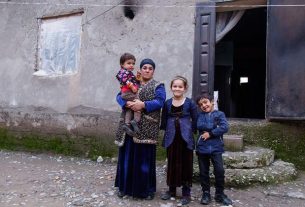Rafah, Egypt/Gaza, 15 October 2025 — Humanitarian aid and fuel trucks began moving into Gaza today through the Rafah border crossing, after Israel agreed to reopen the route following a tense standoff with Hamas over the return of hostage remains. The crossing had been temporarily restricted when Israel accused Hamas of failing to fully comply with a ceasefire agreement that required the transfer of bodies of Israeli captives.
According to Israeli officials, the remains of four hostages were handed over late Tuesday, prompting the government to reverse earlier plans to halve the number of aid trucks permitted. The reopening allows for the entry of up to 600 trucks of humanitarian supplies, including food, medicine, and fuel, coordinated by the United Nations and international relief agencies.
Ceasefire Under Strain
The dispute over the hostages’ remains had threatened to unravel the U.S.-brokered ceasefire reached last week, which paused months of intense fighting. Israeli authorities initially announced punitive restrictions on aid, citing Hamas’s failure to return all bodies as agreed. The move drew concern from humanitarian groups, who warned that further delays risked worsening Gaza’s already dire humanitarian crisis.
Despite the reopening, the ceasefire remains fragile. Reports from Gaza’s Health Ministry indicate continued casualties from sporadic Israeli operations, while international observers caution that any breakdown in the truce could reignite large-scale hostilities.
Humanitarian Urgency
The United Nations has described conditions in Gaza as “catastrophic”, with shortages of fuel crippling hospitals and water systems. Aid agencies welcomed the reopening of Rafah but stressed that sustained and predictable access is essential. “One day of trucks is not enough — Gaza needs consistent humanitarian corridors,” a UN official said.
Regional and International Reactions
The reopening has been closely watched by regional and global powers. Egypt, which controls the Rafah crossing on its side, has urged both Israel and Hamas to uphold the ceasefire terms. The U.S. and EU have reiterated calls for restraint, emphasizing that humanitarian access must not be used as leverage in political disputes.
Outlook
While the resumption of aid deliveries offers temporary relief, the underlying tensions between Israel and Hamas remain unresolved. The hostage issue continues to cast a shadow over the ceasefire, and both sides face mounting international pressure to prevent a return to full-scale conflict.
In summary: Aid and fuel trucks have resumed entry into Gaza through Rafah after Israel reopened the crossing, easing immediate humanitarian concerns but leaving the ceasefire vulnerable to renewed disputes.
Sources: Israeli public broadcaster Kan; UN humanitarian briefings; Gaza Health Ministry updates; international media reports.


